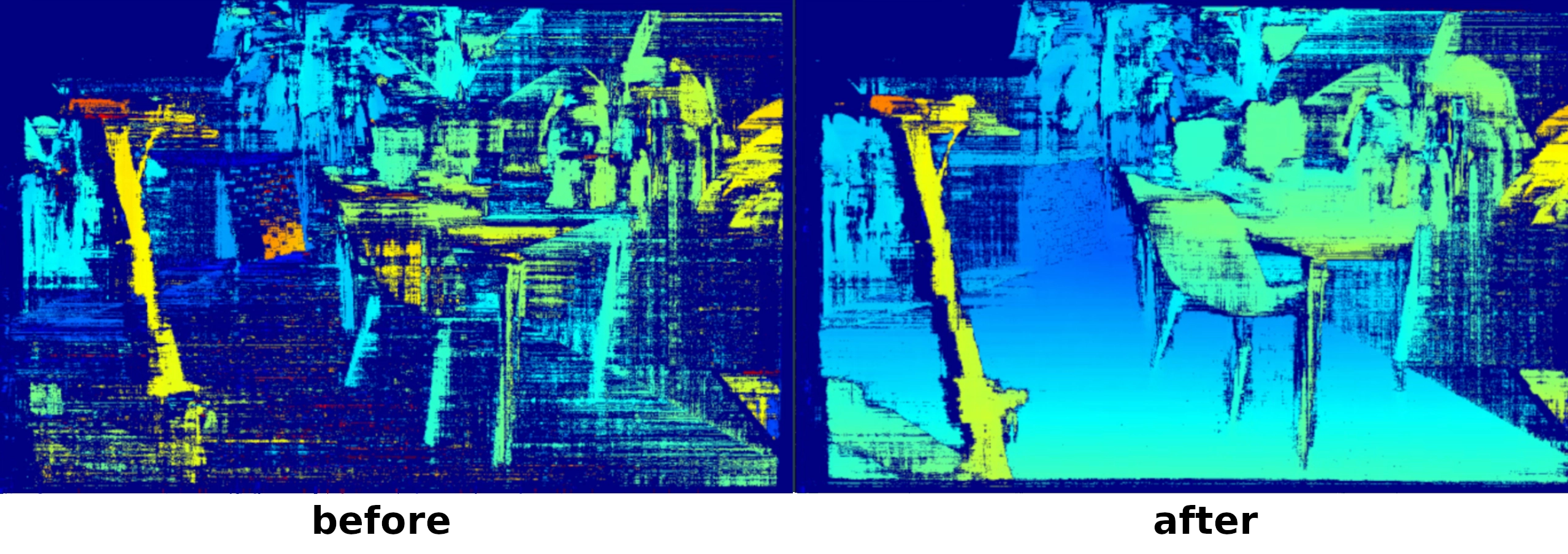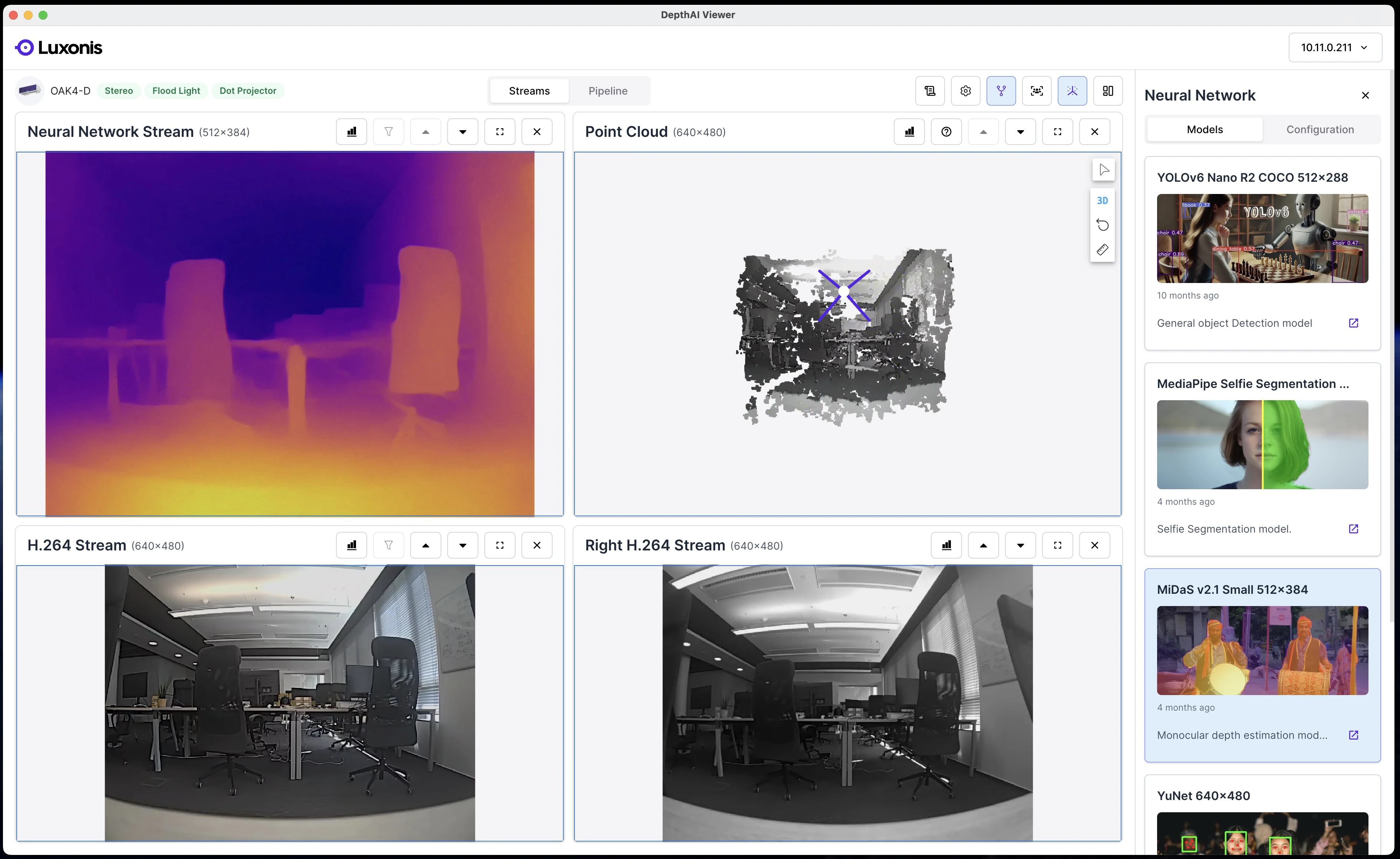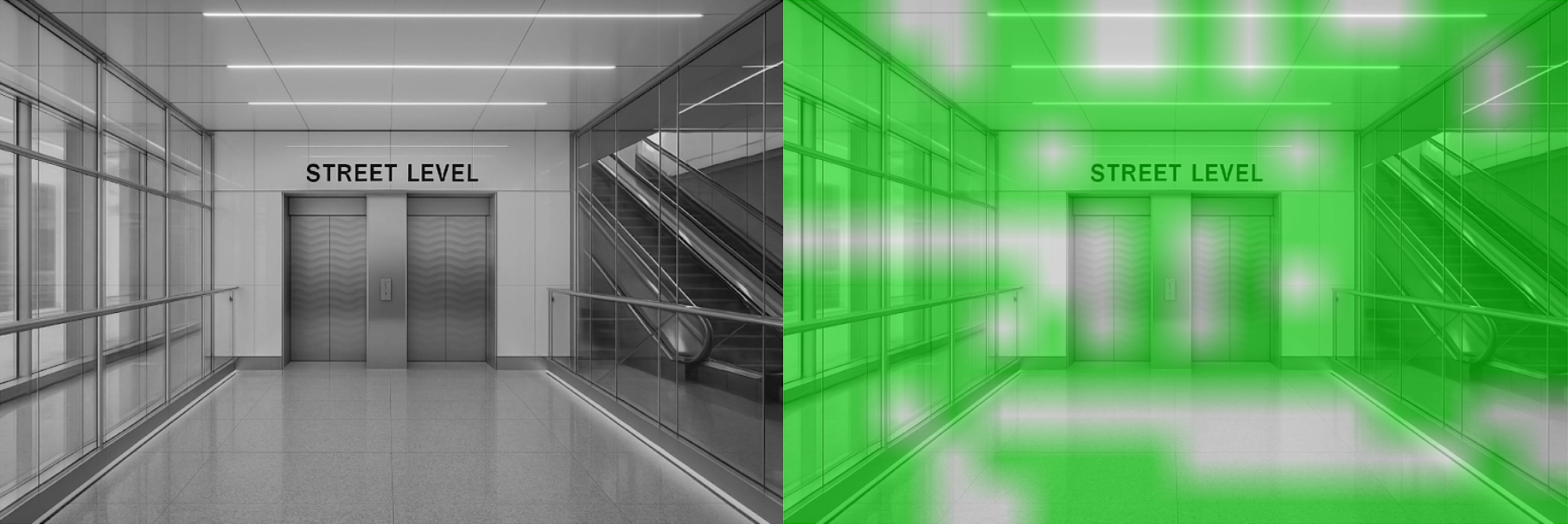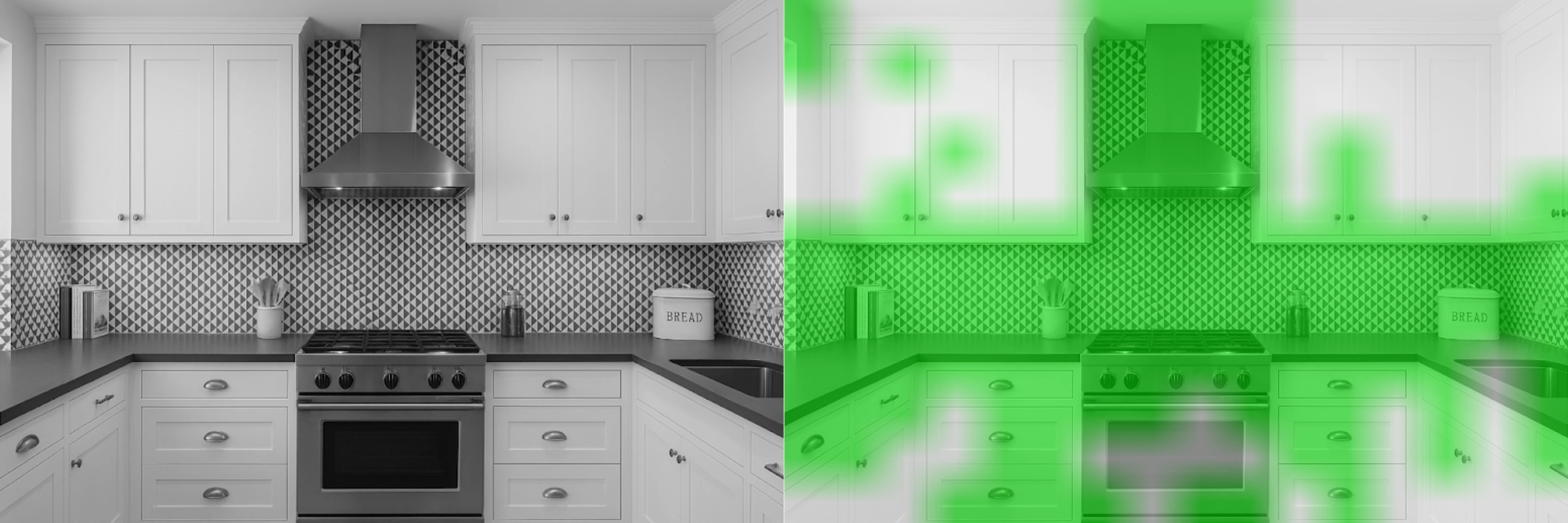DynamicCalibration

Key capabilities
- Restore depth performance — bring your disparity map back to crisp, geometrically consistent output.
- Continuous or manual operation — works in real time or via manual triggers.
- Calibration health monitoring — check alignment drift without modifying the device.
- Fast, robust recalibration — typically completes in seconds using live stereo input.
- No special targets needed — runs in natural scenes with feature-rich visual content.
- Supports all stereo cameras running DepthAI 3.0 — including OAK-D, OAK-D-Lite, OAK-D Pro, CM4 PoE, and more.
Try it out in OAK Viewer (no code required)
OAK Viewer
OAK Viewer is a desktop GUI application that allows you to visualize the camera's streams and interact with the device. It is available for Windows, macOS, and Linux.
Click here to get started
Scenery guidelines
- Include textured objects at multiple depths.
- Avoid blank walls or featureless surfaces.
- Slowly move the camera to cover the full FOV; avoid sudden motions.
| Recommendation | Original Image VS. Feature Coverage (in green) |
|---|---|
| ✅Ensure rich texture and visual detail - rich textures, edges, and objects evenly distributed across FOV create ideal calibration conditions |  |
| 🚫Avoid flat or featureless surfaces - lack of textured surfaces or visually distinct objects provide little usable features |  |
| 🚫Avoid reflective and transparent surfaces - reflective and transparent surfaces create false 3D features |  |
| 🚫Avoid dark scenes - low contrast, shadows, and poorly lit scenes yield few detectable features |  |
| 🚫Avoid repetitive patterns - many patterned regions look too similar to tell apart |  |
Developer Integration
Clone & Run the Example
Command Line
1git clone https://github.com/luxonis/depthai-core.git
2cd depthai-core/
3python3 -m venv venv
4source venv/bin/activate
5python3 examples/python/install_requirements.py
6python3 examples/python/DynamicCalibration/calibration_integration.py